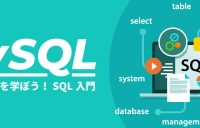nagiosでフリーな監視をしてみよう!~nagiosの構築(3)~
PHP・apacheの初期設定
PHPとapacheの初期設定を行っていきます。
(1)apacheユーザーのホームディレクトリを変更します。
# usermod -d /usr/local/apache2/htdocs apache # cat /etc/passwd | grep apache apache:x:48:48:Apache:/usr/local/apache2/htdocs:/sbin/nologin
(2)雛形からphpの設定ファイル「php.ini」をコピーします。
# cp php.ini-development /usr/local/lib/php.ini
(3)「php.ini」ファイルに以下の内容を修正・追加します。
# vi /usr/local/lib/php.ini
・「php.ini」ファイル変更前の内容
; used regardless of this directive. ; Default Value: On ; Development Value: Off ; Production Value: Off ; http://php.net/short-open-tag short_open_tag = Off
[Date] ; Defines the default timezone used by the date functions ; http://php.net/date.timezone ;date.timezone =
・「php.ini」ファイル変更後の内容
; used regardless of this directive. ; Default Value: On ; Development Value: Off ; Production Value: Off ; http://php.net/short-open-tag short_open_tag = On
[Date] ; Defines the default timezone used by the date functions ; http://php.net/date.timezone date.timezone = "Asia/Tokyo"
(3)「httpd.conf」にAddTypeでphpの拡張子を指定する設定を追記します。
# vi /usr/local/apache2/conf/httpd.conf
・「httpd.conf」ファイル変更前の内容
# running httpd, as with most system services. # User daemon Group daemon </IfModule>
# If your host doesn't have a registered DNS name, enter its IP address here. # #ServerName www.sample.com:80 #
#
# DirectoryIndex: sets the file that Apache will serve if a directory
# is requested.
#
<IfModule dir_module>
DirectoryIndex index.html
</IfModule>
・「httpd.conf」ファイル変更後の内容
# running httpd, as with most system services. # User apache Group apache </IfModule>
# If your host doesn't have a registered DNS name, enter its IP address here. # ServerName localhost:80 #
#
# DirectoryIndex: sets the file that Apache will serve if a directory
# is requested.
#
<IfModule dir_module>
DirectoryIndex index.html index.php
</IfModule>
#<IfModule headers_module> #RequestHeader unset DNT env=bad_DNT #</IfModule> AddType application/x-httpd-php .php .phtml
(4)所有者と所有グループを変更します。
# chown -R apache.apache /usr/local/apache2
(5)サービスを再起動して、設定を有効化します。
# service httpd restart httpd を停止中: [ OK ] httpd を起動中: [ OK ]
(6)phpが有効化されていることを確認するため、phpinfoのテストファイルを作成します。
# cd /usr/local/apache2/htdocs/ # echo '<?php phpinfo();' > info.php
(6)「http://(IPアドレス)/info.php」にアクセスして、phpinfoのページが表示されたら成功となります。

次回は、nagiosのインストールを説明していきたいと思います。









